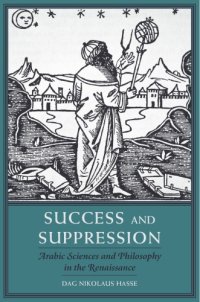
Ebook: Success and Suppression: Arabic Sciences and Philosophy in the Renaissance
Author: Dag Nikolaus Hasse
- Tags: Italy, Europe, History, Middle East, Bahrain, Egypt, Iran, Iraq, Israel & Palestine, Jordan, Kuwait, Lebanon, Oman, Qatar, Saudi Arabia, Syria, Turkey, United Arab Emirates, Yemen, History, History & Philosophy, Science & Math, Modern Renaissance, Philosophy, Politics & Social Sciences, Europe, History, Humanities, New Used & Rental Textbooks, Specialty Boutique, Middle East, History, Humanities, New Used & Rental Textbooks, Specialty Boutique, Philosophy, Aesthetics, Epistemology, Ethics, History & Surveys, Logic, Metaphysics, Humani
- Series: I Tatti Studies in Italian Renaissance History
- Year: 2016
- Publisher: Harvard University Press
- Edition: 1
- Language: English
- pdf
It is often assumed that the Renaissance had little interest in Arabic sciences and philosophy, because humanist polemics from the period attacked Arabic learning and championed Greek civilization. Yet Hasse shows that Renaissance denials of Arabic influence emerged not because scholars of the time rejected that intellectual tradition altogether but because a small group of anti-Arab hard-liners strove to suppress its powerful and persuasive influence. The period witnessed a boom in new translations and multivolume editions of Arabic authors, and European philosophers and scientists incorporated―and often celebrated―Arabic thought in their work, especially in medicine, philosophy, and astrology. But the famous Arabic authorities were a prominent obstacle to the Renaissance project of renewing European academic culture through Greece and Rome, and radical reformers accused Arabic science of linguistic corruption, plagiarism, or irreligion. Hasse shows how a mixture of ideological and scientific motives led to the decline of some Arabic traditions in important areas of European culture, while others continued to flourish.